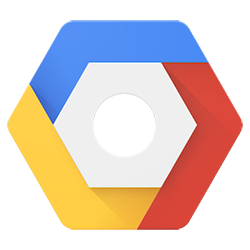Google Cloud Platform

Google Cloud Platform, or GCP, is a cloud computing platform operated by Google, introduced in April 2008. GCP customers can run their business software on Google's massive global infrastructure of networks and data centers. They may also integrate with a vast array of Google APIs (application programming interface).
GCP is part of Google Cloud, an umbrella service which combines GCP with enterprise-level Google Workspace service.
Pricing of GCP varies according to standard or negotiated contract terms. A restricted version of the platform, GCP Free Tier, offers individuals and organizations one year to learn how to use the services and tools, free of charge.
Features and services
GCP resources can be added or removed as needed, including:
- Network bandwidth
- Storage type (HDD, SSD (Solid-State Drive), etc.) and capacity.
- RAM (Random-Access Memory)
- CPUs priced by core.
- GPU (Graphics Processing Unit) computing resources
Services available on GCP include:
- App Engine — The original Google Cloud service, launched in 2008. It offers web application hosting on Google servers, tightly integrated with Google APIs, such as Google Maps and Google Translate.
- Bigtable — A massively scalable NoSQL data store, used internally by Google for all critical sites and services. Available to GCP customers since 2015.
- BigQuery — An API for interactive analysis, analogous to SQL (Structured Query Language) queries, of massive datasets stored in Google Storage.
- Cloud Armor — Configurable firewall for web apps, with DDoS protection.
- Cloud AutoML — Automation of training and deployment of machine learning models.
- Cloud CDN — Customizable CDN (Content Delivery Network) with support for files as large as 5 TB, hosted on Google's distributed global network.
- Cloud Dataflow — Operate Apache BEAM batch and stream processing pipelines within GCP.
- Cloud Datalab — A managed Jupyter Notebook service focused on visualization and exploratory analysis of big ML (Machine Learning) datasets.
- Cloud Dataprep — Clean and prepare big datasets for exploratory analysis with the data wrangling software, Trifacta.
- Cloud Dataproc — Platform for facilitating the processing of big datasets with Apache Hadoop and Apache Spark.
- Cloud Datastore — A schema-less, NoSQL database platform with automatic sharding and replication.
- Cloud Data Studio — Business intelligence visualization and report generation.
- Cloud Functions — FaaS (Functions As A Service), similar to AWS (Amazon Web Services) Lambda. Customers can build serverless microservices, hosting the component functions of their applications in the cloud.
- Cloud Identity — SSO (Single Sign-On) for cloud applications.
- Cloud Load Balancing — Managed load balancing of cloud network traffic.
- Cloud SQL — MySQL and PostgreSQL services.
- Cloud Spanner — RDBMS (Relational DataBase Management System) service with a focus on globally distributed node scaling.
- Compute Engine — Automate the creation and operation of VMs (Virtual Machines) at scale.
- Cloud Vision API — Intelligent, automated image analysis by machine learning.
- Cloud Video Intelligence — The video equivalent of Cloud Vision API.
- Cloud MemoryStore — In-memory storage suited for Redis data stores.
- Cloud Pub/Sub — Real-time, synchronized event message queues for cloud apps and services.
- Cloud TPU — A proprietary Google service for accelerating machine learning.
- Kubernetes Engine — Managed orchestration of containerized apps at a massive scale, using Kubernetes.
- Persistent Disk — Block storage for Compute Engine VMs.
- VPC (Virtual Private Cloud) — A SDN (Software-Defined Network) for GCP, providing centralized, intelligent management of disparate cloud resources.
Bigtable, Computer acronyms, Google, Internet terms, Personal cloud, TLA, Web application
